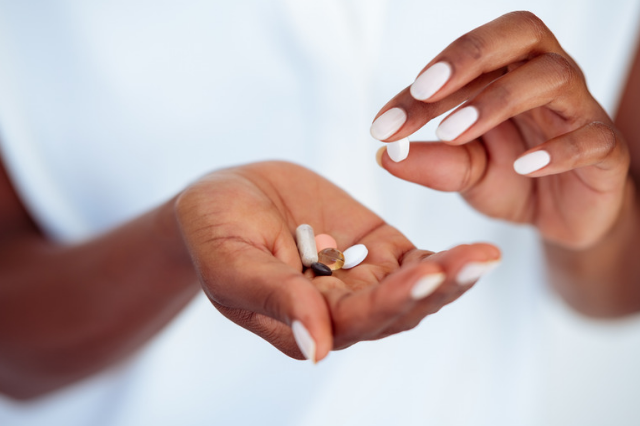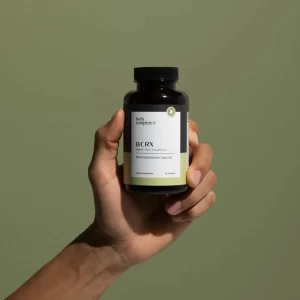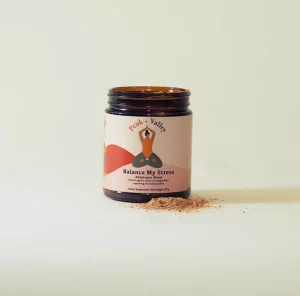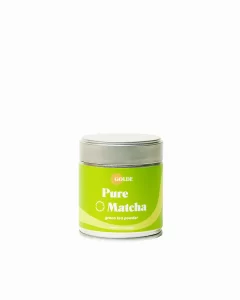Self-care and wellness are the buzzwords of the moment, but it isn’t easy to know where to begin the journey of optimal health. However, we know nutrition is a crucial factor. We spoke with Johane Filemon, a Registered Dietician Nutritionist who runs a company called Wonderfully Nutritious, about the role supplements play in a balanced diet.
BHM: How does access to nutritious food directly correlate to our health conditions?
Johane Filemon: Our community has experienced health disparities since the genesis of this country. Today, access to basic medical needs and a qualified and licensed nutritionist is hard for many in our community, primarily due to their financial capabilities and access to health insurance. Others have poor access to nutrient-dense foods due to the food deserts surrounding them. Because of this, you will find that many are experiencing more health conditions linked to the foods they eat and the lack of nutrients they provide. They lack knowledge of nutrition and have to eat what they have access to.
BHM: Are there any specific vitamin or mineral deficiencies that impact us as a collective?
JF: Vitamin D deficiency is often prevalent in our community. The pigmentation or melanin in our skin reduces Vitamin D production. The fact that most of us are indoors most of the time does not help. Low Vitamin D levels have been associated with decreased immune system function. It is essential to consume foods high in Vitamin D and take daily Vitamin D supplementation to maintain adequate Vitamin D levels.
BHM: Which vitamins and supplements are essential for our overall health, and what are the best ways to ensure their safe and effective use?
JF: There are 13 essential vitamins that our bodies require to function daily. Food is the first place we should aim to get them. Vitamins A, B, C, E, and K come from various foods. This is why consuming a diet of colorful plant-based foods is important, so we often consume these various nutrients. Supplements should come in second to support what we cannot get from the foods we eat, which can be due to various reasons.
BHM: What are your top tips regarding prioritizing our health and wellness while limiting the risk of getting overwhelmed?
J F: Making changes that benefit our health and wellness doesn’t happen overnight and can take baby steps. Stressing over these changes can be counterproductive for our overall health. This is why we need to give ourselves a lot of grace as we make these changes. This does not mean we should not be proactive; it is okay to make one change at a time. Start with consuming more colorful plant-based foods. A diet that consists predominantly of various plant-based foods allows for more consumption of different vitamins and minerals, promoting good gut health by feeding the good bacteria in our gut and our overall body.
BHM: As research often suggests, Black people have higher rates of diabetes, hypertension, and heart disease. What are the best ways within nutritional wellness to combat these conditions?
J F: Start with the basics! Consuming a predominantly plant-based diet where 1/2 of your plate is non-starchy vegetables and fruits as tolerated, 1/4 of your plate a protein, and 1/4 a starch. When managing diabetes and hypertension, tolerance of different foods can be person-specific. It is essential to get the recommendation of a dietitian nutritionist who can evaluate a person’s current health status when making recommendations for better success.
BHM: How can people verify their quality and purity when taking supplements? Are there any red flags they should look for when choosing them?
JF: Unfortunately, supplements are not regulated. I recommend always asking an expert for advice on which supplements are best, especially if a medical diagnosis and prescription medications are also being consumed. Look for supplements that have minimal extra ingredients. Any supplements that claim to heal or make extreme changes “overnight” and “it’s all you will need” to get the results you are looking for should be a big red flag.
Eating a well-balanced diet is the primary source of good nutrition. Still, Supplements and wellness products can be helpful for an additional wellness boost. BHM has created a list of a few Black-owned wellness and health brands.
Veev Nutrition
Veev Nutrition is a brand that focuses on gut health and well-being. Our Johane Filemon founded it! Veev Nutrition is a supplement line created with premium ingredients with a proven history of fighting inflammation, building a diverse gut microbiome, and repairing the damage caused by toxins in our environment and food. An additional bonus of this brand is that it is black and woman-owned, so not only will your support aid in your health, but it will also contribute to our community.
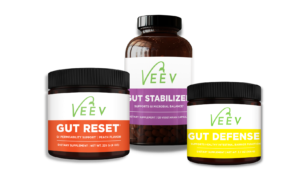
Body Complete Rx
Body Complete Rx, founded by Samia Gore in 2017, is a black and woman-owned wellness brand offering plant-based supplements designed to support many health and fitness goals. Body Complete Rx worked with renowned nutritionist Dr. Ruby Lathon to formulate and launch five product lines, each prioritizing a different wellness goal to support a well-rounded, healthier life.
Peak + Valley
Peak + Valley, founded in 2015 by Nadine Joseph, is known for its supplements for brain and skin health and stress support. Nadine traveled worldwide to source herbs to support and uplift the global herbal community through direct sourcing practices. Nadine’s brand reflects her upbringing, as she looks for natural remedies at the intersection of science and traditional medicine. With Peak and Valley, she hopes to build a better herbal trade with transparent sourcing, unquestionably high-quality ingredients, and science-backed knowledge.
Black Girl Vitamins
Black Girl Vitamins is another excellent brand for those seeking support for vitamin deficiencies. The founder, Maxine, created Black Girl Vitamins to address the nutritional needs of underserved Black women and the scientifically proven nutritional deficiencies common within our community. According to their website, some of the areas that they focus on include:
- Vitamin D, 82% of black women are deficient.
- Iron, Black women are 3x more likely to have anemia.
- Cholesterol, the highest prevalence of heart disease, occurs in the black community.
- Pregnancy, the highest infant and maternal mortality, as well as PCOS, occurs among black women.
Black Girl Vitamins carefully crafts products to nourish and empower Black women so that they can thrive on their wellness journeys.
Golde
Golde is Black and Japanese-owned and was founded in 2017 by Trinity Mouzon Wofford and Issey Kobori. Golde is making wellness accessible, fun, and easy for everyone, providing its supporters with healthy superfood essentials. Their product lineup focuses on superfoods that address common health needs, including stress relief, gut health, skin hydration, and immune support. Of all their products, their matcha additives are immensely popular and have other products that can benefit unique needs.
Before trying any of these products, please speak to your healthcare provider to ensure they will be safe and effective. Remember, it is never too late to prioritize your health, nutrition, and wellness.



